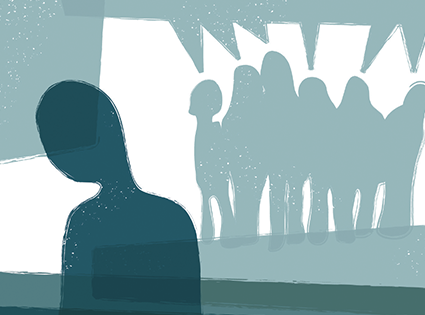Alaska Grapples with High Bullying Rates
A recently released study by WalletHub, found that Alaska is the second-highest state in the United States in terms of bullying prevalence among students. This is profoundly concerning information given that bullying has a series of multifaceted consequences. Beyond the immediate physical, emotional, and psychological suffering of victims which can have long-term impacts on their lives, bullying affects all the people involved. Research by the American Psychological Association reveals individuals that suffer from bullying experience an undermining of their psychosocial functioning, and children and youth that bully are more likely to hold beliefs that support violence and might encourage others to bully, hence perpetuating the problem. Therefore, this problem needs to be taken seriously.
In the study’s results, Alaska ranked seventh in terms of having written regulations in place to address bullying. However, this is overshadowed by the fact that the state reported the highest percentage of bullying incidents occurring on school property and the fourth highest of cyber bullying. Notably, the pervasive issue of bullying in Alaska is listed as one of the factors affecting school attendance in an article by the Associated Press. The state leads the nation in student absences and continues to decline post pandemic, mirroring national trends. Adding to the gravity of the situation, the Alaska Black Caucus has raised its voice in response to a troubling bullying case at Winterberry Elementary. In a letter addressed to the Anchorage School Board, Celeste Hodge Growden, the President and CEO of the Alaska Black Caucus, expressed deep concern regarding multiple instances of harassment endured by, a fourth grader at Winterberry Elementary. According to the letter, the student´s mother has reported that her son has been subjected to relentless bullying since kindergarten, involving verbal, emotional, and physical abuse. The letter further states that, despite multiple attempts by the mother, the problem has not been properly addressed by school authorities: “She has contacted the teacher, the school’s principal, and ASD numerous times throughout the years (in person, via phone, zoom, and email) for a resolution to this problem, but it has still not been addressed.” The student has reported multiple occasions of usage of racial slurs against them, as recently as September 24. The toll this has taken on their emotional well-being has been so severe that they now require psychological therapy to cope with trauma. ABC’s letter highlighted the Anchorage School District’s commitment to being an anti-racist institution, emphasizing its rejection of all forms of racism and a dedication to promoting a culture that respects diversity and life experiences, and calls for a prompt intervention in line with the district’s anti-racism and instructional equity policies to address this critical issue. As it was previously mentioned, the prevalence of bullying is linked to its further proliferation. Hence, the urgency of this matter cannot be overstated, and it is crucial to resolve it, both in this particular case and across the state, to ensure a nurturing learning environment and to protect the well-being of the next generation of Alaskans. Sol de Medianoche News reached out to ASD’s Director of Charter Schools Jason Hlasny on November 13th to hear the district’s perspective on the events that happened at Winterberry and what actions the district was taking, but did not receive a reply. The name of the family involved has been omitted to protect the student’s privacy and safety. |
